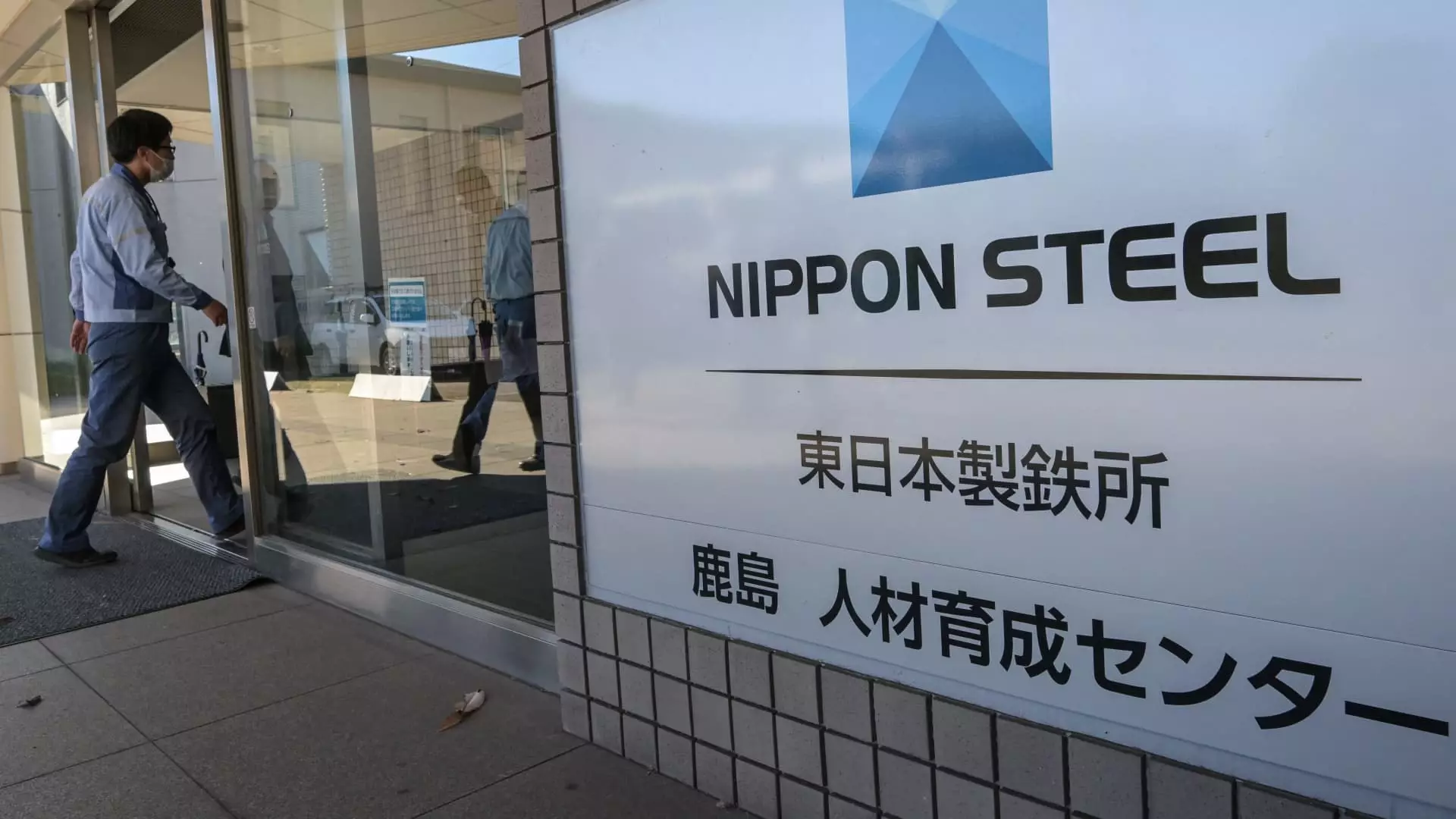The bold ambition of Nippon Steel to acquire U.S. Steel for a staggering $14.9 billion has hit a significant roadblock, with President Joe Biden reportedly set to block the deal. This decision, highlighted by The Washington Post based on insights from anonymous sources within the administration, reflects a deep-seated concern over national security implications tied to foreign ownership of critical industries.
Nippon Steel’s bid for U.S. Steel emerged amidst a broader context of increasing interest from foreign firms in American industries, particularly in sectors vital to national infrastructure and security. The Committee on Foreign Investment in the United States (CFIUS) initially assessed the situation but could not reach a consensus, ultimately leading to a direct recommendation for Biden’s attention in December 2022. The Committee’s worries centered on the potential risk posed by Nippon Steel’s control over U.S. Steel’s production capabilities. The fear was that a reduction in production capacity could lead to significant supply shortages, especially in industries deemed critical to national defense.
These concerns reflect a nuanced understanding within the Biden administration about the delicate balance of maintaining strong domestic manufacturing sectors while navigating the complexities of global commerce. The administration has made it clear that national security takes precedence when it comes to significant foreign investments in crucial American companies.
The Extended Transaction Timeline and Responses from Nippon Steel
In light of the administration’s decision-making pace, Nippon Steel has proactively adjusted the timeline for the transaction. Initially expected to close in 2024, the new deadline has been pushed to the first quarter of 2025, indicating both the uncertainty looming over the deal and the company’s commitment to pursuing the acquisition.
In an attempt to placate the U.S. government’s security concerns, Nippon Steel has offered multiple concessions. These include a guarantee that production levels would not drop without U.S. government approval and a commitment to retain U.S. Steel’s operations in Pittsburgh, along with governing its board with American citizens. Despite these overtures, the Biden administration stands firm in its opposition, reflecting the administration’s overarching philosophy towards foreign acquisitions of significant American assets.
Shareholder Support vs. Political Stance
Interestingly, while there has been strong backing from U.S. Steel shareholders—an endorsement echoed by President and CEO David B. Burritt—this corporate support seems to have been outweighed by national interests in the eyes of the administration. The shareholders voted overwhelmingly in favor of the acquisition, indicating confidence in the financial and strategic merits of the deal. However, the intermingling of economics and national security presents a dilemma where the Biden administration’s political stance sharply diverges from corporate interests.
Biden’s previous statements and a consistent narrative emphasizing the necessity of maintaining U.S. Steel as an American entity demonstrate his administration’s intent to protect domestic production capability. The apprehension resonates across both sides of the political aisle, as evidenced by former President Donald Trump’s vocal opposition to the deal. Trump’s concerns amplify the sentiment that American industries should fundamentally remain under domestic control, especially one as emblematic as U.S. Steel.
The potential fallout from blocking Nippon Steel’s proposed acquisition extends beyond just this single transaction. It prompts a reevaluation of America’s openness to foreign investment, especially in sectors that underpin its economic health and security. The Biden administration’s firm stance could herald a new wave of scrutiny for corporate acquisitions, particularly those involving foreign nations.
As the global economy’s complexities deepen, the implications of national ownership in industries adventure into uncharted territories. Companies like Nippon Steel might reconsider their strategies in light of these regulatory barriers, which could affect both foreign investments into the U.S. and domestic corporate dynamics.
The impending roadblock against Nippon Steel’s acquisition of U.S. Steel reveals not only the deeper national security ethos of the Biden administration but also highlights the complicated intersection of global investment and domestic industry. This scenario represents a critical moment in U.S. economic policy, wherein the preservation of national integrity could shape corporate landscapes for years to come.


Leave a Reply